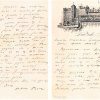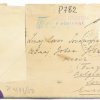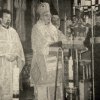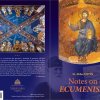Писмо које је Никола Тесла написао Јовану Јовановићу Змају, обавештавајући га да жели да његове песме преведе на енглески и објави у Америци, од данас је по први пут јавно изложено у Народној библиотеци Србије, а у оквиру представљања најзначајнијих експоната из колекције београдске библиотеке.
.Јављајући се Змају из Њујорка, велики научник је писао да ће пробати да са америчким песником Робертом Џонсоном преведе неке од песникових стихова. Како кажу у Народној библиотеци Србије, реч је о оригиналу датираном на 15. јун 1894, који ће бити постављен у специјалној комори у холу испред централне читаонице све до 1. марта. У националној библиотеци такође кажу да је ово писмо сведочанство Теслине љубави и поштовања према Змајевој поезији.
– Библиотека је купила писмо 1959. од приватног понуђача и данас је његов чувар – објашњава Оливера Стевановић, начелница Одељења посебних фондова у Народној библиотеци Србије.
– Тесла је написао писмо веома узбуђен због Змајеве песме „Поздрав Николи Тесли”. Њихов однос је био диван, мислим да је Тесла био заљубљен у Змајеве стихове.
Змај је написао поменуту песму поводом јединог Теслиног доласка у Београд 1892. Поета и лекар је лично прочитао песму добродошлице на пријему у Теслину част.
У писму које је представљено у националној библиотеци Тесла је од песника тражио да му пошаље своју фотографију као и своја нова издања. Тесла је дословно превео песме „Три Хајдука”, „Два сина”, „Циганин хвали свога коња” и „Тајна љубав” да би се Џонсон побринуо за песнички стил превода. Иначе, Џонсон је био велики Теслин пријатељ. Помагао му је да идеје представи јавности објављујући његове научне чланке или новинарске чланке о њему у њујоршком часопису „The Century Magazine”. Управо је у овом магазину 1894. Тесла и објавио поменуте преводе као и свој текст о Змају и српској народној поезији.Објашњавајући сарадњу са Џонсоном, Тесла је у овом писму јављао Змају:
„У Америци нема бољег преводиоца. Преводи његови управо дивни су, а ако је погдекад мора променити по који редак, то је било неопходно нужно у духу енглеског језика. Сад преводимо неколико другијих песама. Хтедох ’Ђулиће’, али је претешко...”
ПОЛИТИКА 1. 2. 2013.






